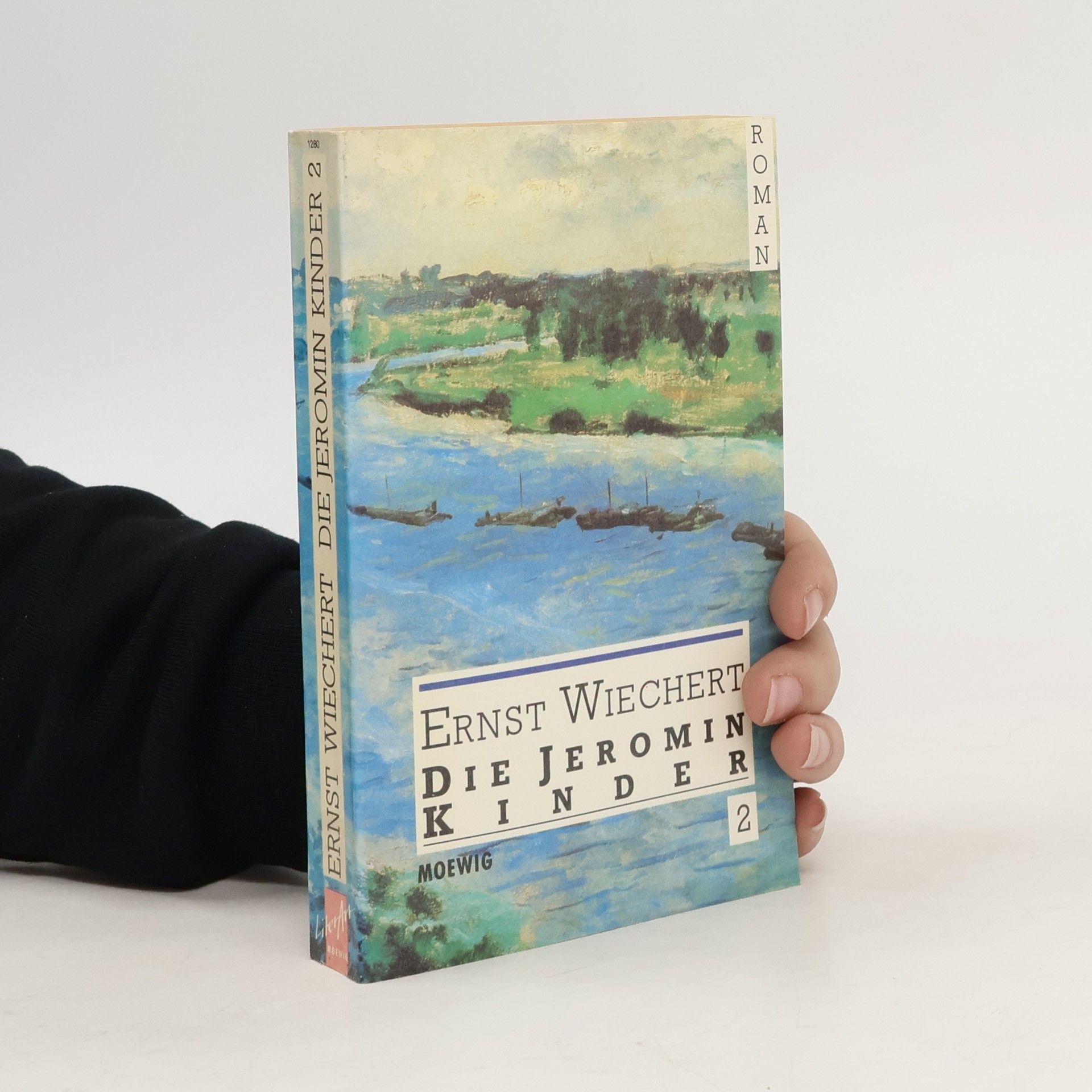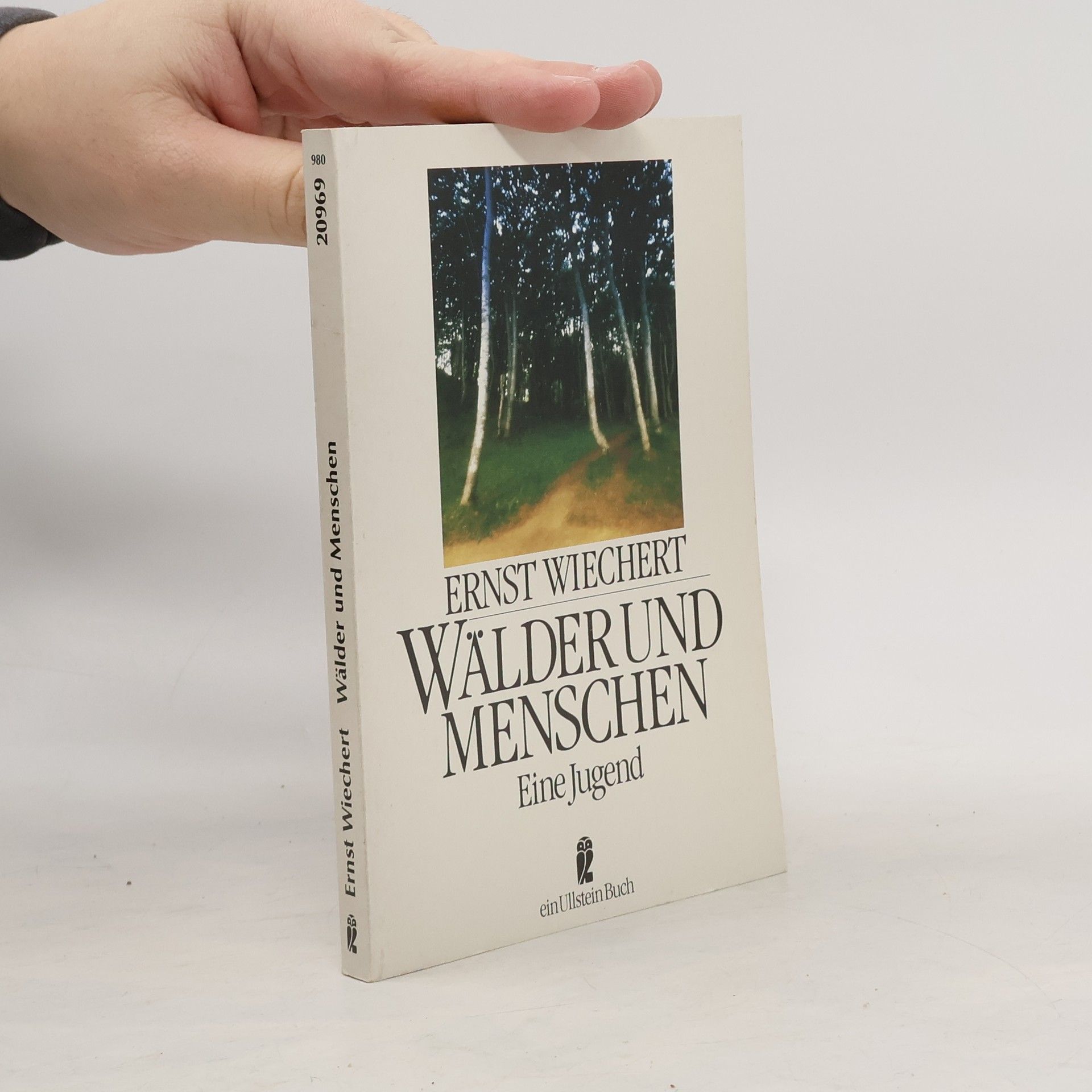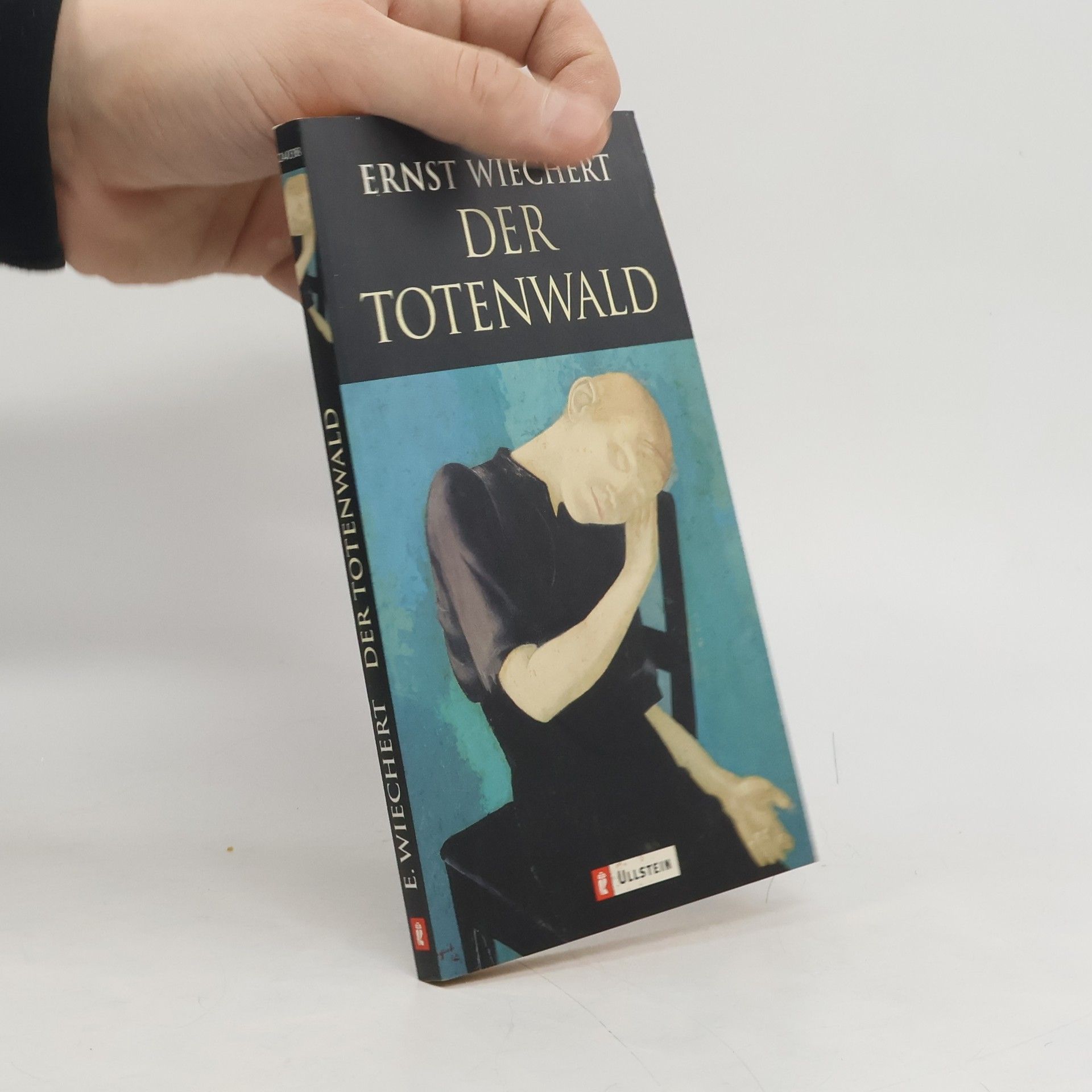Ernst Wichert Libri
Ernst Wiechert, insegnante, poeta e scrittore tedesco, patrocinò le virtù della semplicità, dell'umiltà e dell'amore ideale nella sua opera. Nonostante la sua opposizione al regime nazista, che portò al suo internamento, la sua eredità è complessa a causa della sua perdurante popolarità sotto quel regime. Ciononostante, i suoi scritti testimoniano costantemente la sua incrollabile difesa delle sue convinzioni, compreso un romanzo che sosteneva una vita buona come risposta al malessere dell'epoca. I suoi scritti critici, conservati dopo la guerra, servono come testimonianza delle sue esperienze e come memoriale per i defunti.






Die Magd des Jürgen Doskocil (Großdruck)
- 160pagine
- 6 ore di lettura
Ernst Wiecherts Roman „Die Magd des Jürgen Doskocil“ (1932) erzählt von menschlichen Schicksalen in schwierigen Zeiten. Diese Ausgabe, bearbeitet von Theodor Borken, bietet einen lesefreundlichen Großdruck und wurde an die neue deutsche Rechtschreibung angepasst. Wiechert, ein bedeutender Autor seiner Zeit, erlebte eine bewegte Lebensgeschichte.
Der alte Fauberer
- 590pagine
- 21 ore di lettura
Historischer Roman uber Heinrich von Plauen, der als Retter des Deutschen Ordens nach der Schlacht von Tannenberg gilt.
Ernst Wiecherts Roman entstand in einer Zeit, die stark vom Nachhall des Ersten Weltkriegs geprägt war, als die alte Ordnung zerbrochen und eine neue noch nicht in Sicht war. Vor diesem düsteren Hintergrund präsentiert sich „Der Totenwolf“ als erzählerisches Manifest, das heidnische, antichristliche und deutschbewusste Züge trägt. Es ist ein Sinn- und Gottsucherroman, der durch einfühlsame Schilderungen seelischer Konflikte, einen spannungsreichen dramatischen Verlauf und sprachliche Schönheit besticht und zugleich verstört. Wolf Wiedensahl wächst als Kind, von seinen Eltern verstoßen, bei seiner Großmutter in den masurischen Wäldern auf. Diese heile ostpreußische Welt, fernab der Zivilisation, ist von einer naturmystischen Magie umgeben. Als Wolfs Vater nach Jahren zurückkehrt und ihn zur Schule schickt, wird der Junge mit der Grausamkeit der Außenwelt konfrontiert. Der Krieg, den Wolf als Soldat und Offizier erlebt, wird meisterhaft und sprachgewaltig beschrieben; es entsteht eine grausame Ästhetik des Schreckens, in der unerfüllbare Erlösungsphantasien um Leben und Tod ringen. Nach seiner Rückkehr, seelisch zerrüttet, findet Wolf in einer hedonistischen und dekadenten Gesellschaft keine Heimat mehr. Der Totenwolf beginnt seinen Rachefeldzug!
Wälder und Menschen
- 219pagine
- 8 ore di lettura
In eindringlicher und zeitloser Weise beschreibt der Dichter Ernst Wiechert seine glückliche Kindheit in einem einsam gelegenen Forsthaus in den Wäldern Ostpreußens, umgeben von Seen und Mooren. Erst im Schulalter begegnet er der Geschäftigkeit der Stadt und dem menschlichen Miteinander, das er aus seiner Einsamkeit heraus erlernen muss. Diese neue Welt wird von seiner Sehnsucht nach der Stille und Majestät der Wälder seiner Heimat überschattet, die er mit ergreifenden Worten schildert. Mit großer Liebe, leisem Humor und lächelnder Ironie erzählt Wiechert von seiner Wanderung durch die Stätten und Jahre seiner Kindheit und Jugend. Über allem schwebt der köstliche Schimmer der Erinnerung, ein Glanz, „den nur der frühe Morgen hat, bevor eine Fährte durch den Tau läuft und eine Vogelstimme über den dampfenden Wäldern steht“. Ernst Wiechert wurde am 18. Mai 1887 im Forsthaus Kleinort geboren und war bis 1933 im höheren Schuldienst tätig. Nach seiner Niederlassung in Bayern wurde er wegen seines Widerstands gegen das Naziregime zeitweise im Konzentrationslager Buchenwald inhaftiert. Zu seinen wichtigsten Werken zählen Erinnerungsbände, Romane, Märchen und Novellen. Der Dichter starb am 24. August 1950 in der Schweiz.
Der Totenwald
- 140pagine
- 5 ore di lettura
Wer von den Jüngeren kennt den 1887 in Ostpreußen geborenen, 1950 am Zürichsee gestorbenen Ernst Wiechert, der in den dreißiger Jahren und kurz nach dem Zweiten Weltkrieg zu den erfolg- und einflußreichsten deutschen Schriftstellern und während der Nazizeit zur sogenannten inneren Emigration gehörte?

